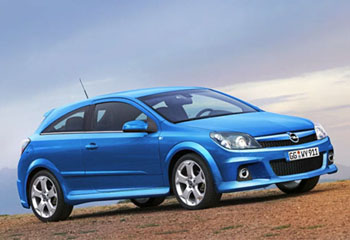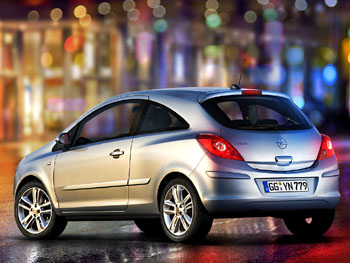
 |
|
Fiat CEO Sergio Marchionne met with union
bosses yesterday to try to allay the fears of
Opel workers who build cars including the
Astra (top) and Corsa (bottom) that a merger
with Fiat could
result in large jobs losses and that he has a
viable plan that can safeguard the German
carmaker's future. |
|
|
|
After Fiat CEO Sergio Marchionne
met with
Opel's powerful IG Metall union yesterday, it has
been revealed that, following the pattern of the
Chrysler deal, Fiat won't be injecting any
of its own capital into Opel if a deal is agreed and
instead the restructuring will be reliant on a massive
dose government state aid of up to 7
billion euros. Today is the German government's
deadline day for bids for Opel to be submitted.
Marchionne met with union bosses yesterday to
try to allay the fears of
Opel workers that a merger with Fiat could
result in large jobs losses, and that he has a
viable plan that can safeguard the German
carmaker's future. After the meeting, IG Metall
chief Bertold Huber told a press conference that
the talks were "open and constructive" and that
any buyer should have adequate capital and
liquidity to put Opel onto a strong footing for
the future. He also wants to see the situation
resolved as quickly as possible. "We don't want
to wait for the insolvency of GM," commented
Huber. GM has been given until June 1 by the
U.S. treasury Department to restructure of face
bankruptcy.
Marchionne said
after meeting Huber that he had made no promises on job
security, telling reporters that he "didnít discuss numbers
with anybody." And adding that: "The real issue is that itís
not just an Opel issue, itís an industry question. We do
have a structural overcapacity problem in the industry
across Europe and in the U.S. We need to act European in
this context."
However it has been made clear yesterday that
Fiat won't put any of its own cash into the
merged entity. "Fiat will not be bringing cash,
but will offer its assets in exchange," a Fiat
source had told AP earlier yesterday. The
deal being proposed by Fiat is similar to the
one accepted by the U.S. government for Chrysler
in that no cash was provided by Fiat. In the
Chrysler case Fiat was offering access to its
own technology in exchange for taking an initial
20 percent stake. This can be raised to a
controlling interest in the future after certain
targets are met. Marchionne is hoping to create
his new global carmaking group by using state
aid from both sides of the Atlantic and is
hoping to replicate the Chrysler strategy by
persuading the German government and
administrations in other European countries
where GM Europe has factories located to hand
over billions of euros in loans. "All these
operations require bridge loans," Marchionne
said during an interview yesterday. "We'll
finalise the numbers."
During the interview Marchionne also confirmed
that his proposal for the takeover of Opel won't
involve any injection of equity but will include
assets that are "better than cash". Revealing
that he hasn't submitted any bid for Opel yet,
Marchionne added that "youíre getting a whole
pile of assets that produce cash, which is as
good or probably better than cash." Without
outlining any financial details Marchionne said
that: "What we can offer Opel is a lot. Cash
runs out; assets that produce cash don't."
Meanwhile former Chrysler minority shareholder
Daimler AG's Chairman Dieter Zetsche has said he
has a "strong hope" that the Fiat-Chrysler
alliance can be successful, while at the same
time acknowledging that the deal to give up its
19.9 percent stake was "certainly not cheap for
us." As well as giving up its stake, Daimler
wrote off a US$1.5 billion loan made to Cerberus
Capital Management LLC when its sold 80.1
percent of the equity. Daimler AG also agreed
last month to pay US$600 million into Chrysler's
pension pot in three instalments, the last
coming in 2011. "It was certainly a fair package
altogether for all parties involved," Zetsche
told reporters yesterday, adding that he was
"very satisfied" with the deal." Zetsche went on
to say that he looked forward to the new entity
being able to hold its place. "I certainly do
hope that some of the strengths Fiat can bring
to the party will help Chrysler and vice versa
so that it can be stronger than a stand-alone
form," he said, but noting however that it is
"very difficult to make that assessment from the
outside."
|